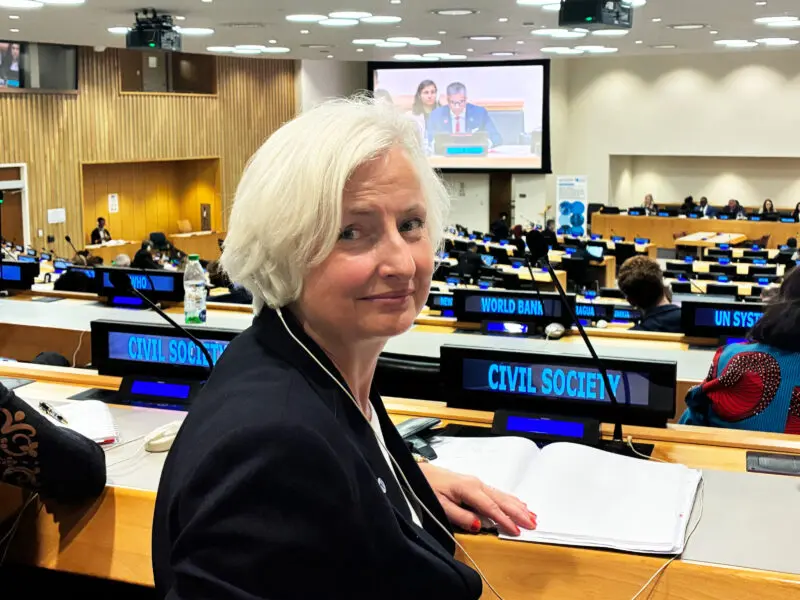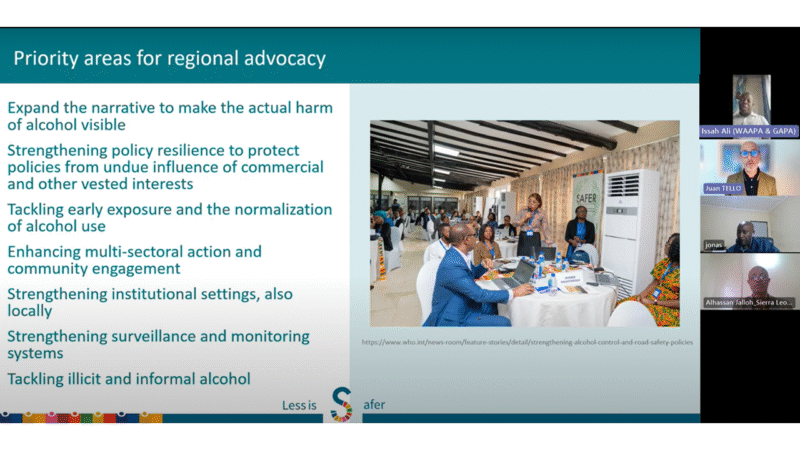We are happy to announce a new partner organisation, CLAS, the Coalition for Americas’ Health or Coalición América Saludable. CLAS will be a part of FORUT’s Alcohol, Drugs, and Development (ADD) programme and is the only FORUT partner in the Americas. This means we now directly work in Asia, Africa, Americas and Europe.
– We are very pleased to begin our work with FORUT, says CLAS Director Beatriz Champagne.
CLAS is a coalition working with many different challenges related to preventing and controlling non-communicable diseases (NCD) in the Americas. Their main task is setting the agenda to promote a healthy living environment and social development.
– Our job is to focus the region on health and policy change, our most important area of work, says Director Beatriz Champagne.
The CLAS partnership with FORUT will address one of the NCD risk factors, alcohol, particularly through advocating for alcohol control policies. CLAS is also the regional alcohol policy network in Latin America, affiliated to the Global Alcohol Policy Alliance.
CLAS’ work is always based on scientific evidence and evaluation of the political, social and economic situation of countries in this region. With a broad range of challenges related to NCDs, CLAS is alert to opportunities as they arise to advance policies and initiatives. When the political space is propitious, CLAS aims to be ready with the information and organization required to advance a measure.
CLAS has a broad member base which includes NGOs and patient groups as well as individuals. They also have a youth group – Youth Alliance. Their members, located all over Latin America, work on all levels through different means, including social media, letters, petitions and communication with local and national legislators.
Alcohol is responsible for 5.5% of total deaths in the Americas and 6.7% of total disability. If current trends in the region go unchanged, 1 million people will die due to alcohol in 2025. There is not only the problem of direct alcohol health issues, but also the economic and social problems that follow. Money is spent on alcohol, and not on necessities. Drinkers can also struggle with lower wages and lost employment opportunities, increased medical and legal expenses, and decreased eligibility for loans.
This is where CLAS comes in. Through its work, such as developing the Regional Agenda 2030, the coalition has set regional priorities and goals focused on reduction in alcohol consumption to control and limit NCDs.
CLAS’s work on alcohol has been done with little funding. Despite this, CLAS has worked diligently on alcohol policy and has created a regional working group. It is expected that with FORUT’s support, it will be possible to increase awareness about the harms of alcohol and promote change.
A large area of work for CLAS is capacity building. This can help organize national coalitions, advocacy strategy and communication campaigns with NGOs and allies and advance polices, such as those that limit access to alcohol.
FORUT and CLAS will work together for the next five years.
Champagne points out that they have the contacts at the regional and national levels to determine needs and facilitate actions towards improved alcohol policies in the region.
CLAS also has experience and knowledge of this region to collaborate with local advocates to help build capacity at the national and local levels.
She also states that FORUT has a lot of competence that CLAS can lean on as well as experience from other countries. FORUT also works on the global level and can help raise CLAS’s voice in places such as the UN and WHO.






